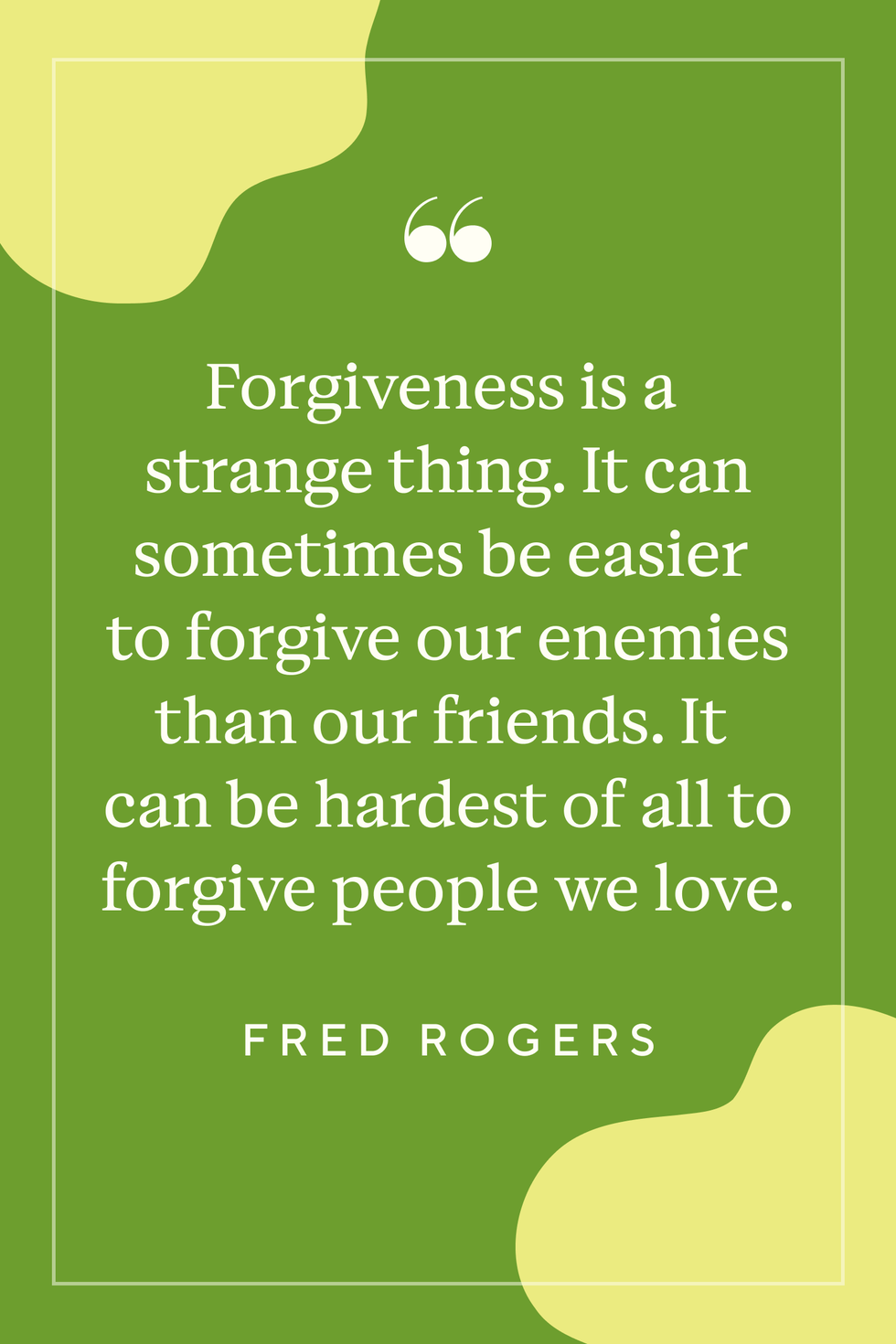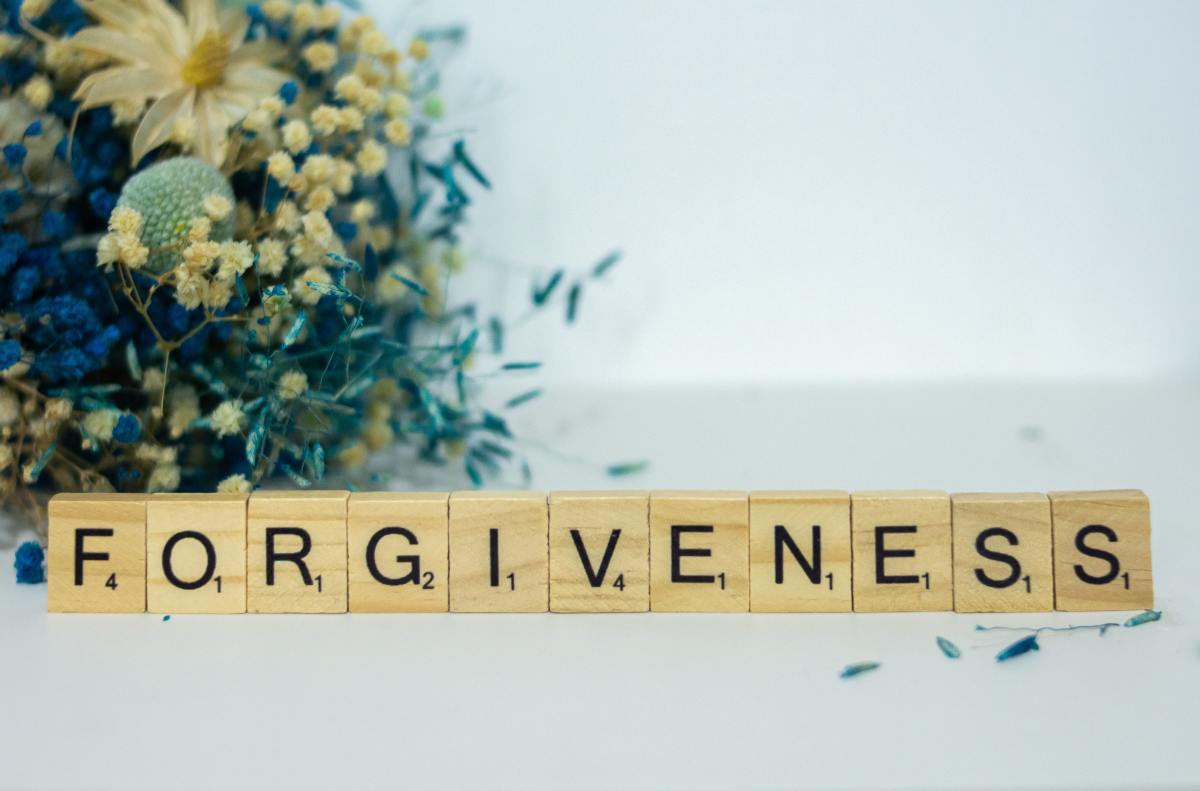Discover the Powerful Steps to Forgive Yourself and Others for a Fulfilling Life
Understanding the Importance of Mercy in Healing Relationships
Mercy is commonly watched as a basic act of releasing, yet its significance in healing partnerships expands much past plain absolution. It functions as an important device for psychological release, enabling people to browse the intricacies of discomfort and animosity. Understanding the nuanced distinctions in between forgiveness and settlement can brighten the course towards much healthier communications. As we explore the diverse benefits of mercy, one must consider just how these concepts can transform not just individual connections yet likewise the more comprehensive social material. What remains to be discovered is the extensive impact forgiveness can carry individual development and common harmony - The importance of forgiveness.
The Meaning of Mercy
Although mercy is typically viewed as a straightforward act of letting go, its interpretation incorporates a complicated interaction of mental and psychological processes. At its core, forgiveness is the conscious choice to release feelings of resentment or vengeance toward a specific or team that has actually created damage. This procedure is not merely about absolving the transgressor; rather, it includes a profound psychological makeover that can bring about individual development and recovery.
Forgiveness is diverse, commonly characterized by a person's inner battle to resolve their pain with the need for peace. It needs identifying the wrongs devoted, refining the connected emotions, and ultimately choosing to move on without the burden of bitterness. This option commonly entails a cognitive change, where one reframes their understanding of the perpetrator and the transgression, allowing for empathy and understanding to emerge.
Notably, mercy does not indicate pardoning the behavior or failing to remember the infraction; it is an intentional act that prioritizes psychological wellness. By defining forgiveness in this fashion, we can appreciate its role in helping with healthier relationships and promoting emotional durability, setting the stage for deeper expedition right into its benefits.
Psychological Benefits of Mercy
Forgiveness uses considerable emotional benefits that can profoundly impact a person's mental wellness and overall health. When a person picks to forgive, they actively release feelings of anger, anger, and bitterness, which can otherwise create a heavy emotional concern. This launch commonly leads to a reduction in stress and anxiety, advertising a feeling of tranquility and psychological security.
Furthermore, mercy cultivates a boosted ability for empathy and concern. By understanding the point of view of the transgressor, individuals can grow a much deeper psychological durability, which improves their capacity to manage future challenges. This procedure not just boosts emotional guideline yet additionally contributes to a more favorable outlook on life.
Furthermore, flexible others can enhance one's self-worth and self-regard. It permits people to reclaim their individual power, breaking without the negative cycles of victimhood - The importance of forgiveness. This newfound empowerment can bring about healthier psychological responses and stronger interpersonal partnerships
Forgiveness vs. Reconciliation
The difference in between mercy and reconciliation is essential in recognizing the dynamics of healing connections. Mercy is an internal procedure wherein a private picks to allow go Our site of bitterness and negative feelings towards a person that has actually caused harm. It is mostly an individual trip, focused on emotional release and self-healing, enabling one to move on without lugging the burden of past grievances.
In comparison, reconciliation entails rebuilding and restoring the connection to a state of trust fund and common regard. This process typically needs open interaction, active participation from both events, and a commitment to dealing with the underlying problems that caused the conflict. While mercy can happen separately, settlement requires the desire of both people to participate in dialogue and pursue a common understanding.
It is important to keep in mind that forgiveness does not constantly lead to settlement. An individual may forgive an additional without opting to bring back the partnership, especially if depend on has been irrevocably harmed or if the partnership is deemed undesirable. Comprehending this distinction enables people to navigate their emotions properly and make notified decisions concerning their relationships.
Actions to Grow Mercy
Growing mercy is a calculated procedure that entails several essential steps targeted at facilitating psychological recovery. The very first step is acknowledging the discomfort brought on by the violation. Identifying one's feelings is crucial, as it enables people to refine their feelings truly.
Next, showing on the event and recognizing its influence can supply clarity. This reflection ought to consist of taking a look at the inspirations behind the transgressor's activities and identifying that every person is fallible.
The 3rd step entails making an aware choice to forgive. This choice is critical, as it signifies a determination to let go of resentment and progress.
Consequently, sharing feelings in a constructive fashion can be beneficial - The importance of forgiveness. Whether via journaling, talking with a trusted pal, or looking for treatment, expression of emotions can assist in the mercy journey
Real-Life Examples of Mercy

In one more instance, a close-knit group of good friends faced a considerable break after one member unintentionally shared an exclusive key. Rather than nurturing resentment, the affected buddy made a decision to forgive, understanding the importance of valuing the relationship over the blunder. This choice motivated open dialogue and eventually reinforced their he has a good point connection.

Final Thought
Finally, mercy plays a critical role in the recovery of connections by facilitating the release of adverse emotions and promoting empathy. By comparing mercy and settlement, people can participate in a constructive procedure that enhances emotional health. Carrying out actions to cultivate mercy can result in transformative outcomes, enhancing links and advertising a helpful atmosphere. Eventually, the practice of mercy works as i was reading this a driver for individual development and the nurturing of much healthier social dynamics.
